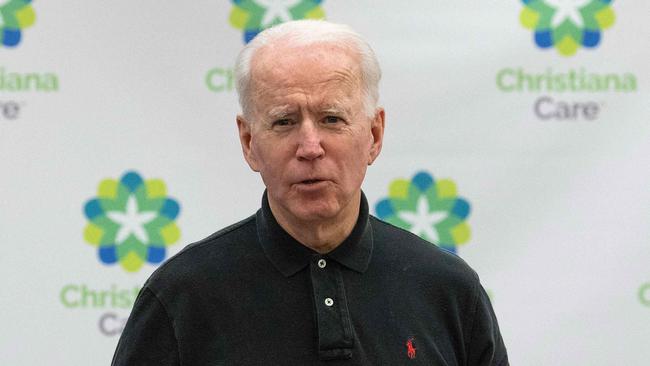Beijing won’t bow to bluster on Taiwan

It gets less empty every day. Increasingly, the military balance has shifted from a clear US advantage into a grey zone as China’s build-up accelerates. This is anything but a secret; the gradual decline of America’s ability to forestall an invasion of Taiwan is well understood around the Pacific.
Permitting the erosion of the US position around Taiwan was one of the great strategic blunders of modern times. The fall of Taiwan would be bad news not only for its democracy-loving and independence-minded residents. It would be a strategic catastrophe for Tokyo, leaving Beijing in control of the sea routes Japan needs for survival. A Chinese takeover would be such a conclusive demonstration of US weakness that no country, from India to Vietnam, could or would risk its security on US ties. Given the island also hosts the world’s most advanced semiconductor industry, controlling Taiwan would put China on the road to world technological and economic supremacy even as it became the arbiter of Asia.
It doesn’t take a war to change the politics of Asia. Already, signs the strategic balance is drifting in Beijing’s favour undermine confidence in America and strengthen the arguments of China appeasers from Tokyo to New Delhi.
Restoring a stable power equation is possible but cannot be achieved overnight. It will require significant military spending and perhaps some difficult trade-offs elsewhere, but it also necessitates a renewal of US diplomacy in the region. By co-ordinating military planning and burden sharing more closely with countries like Japan, India, Vietnam and Australia, the military balance can be stabilised and secured in less time and with less cost. And solidifying relationships with neighbouring countries such as The Philippines and Pacific island nations to allow the allies to disperse forces to more bases will make those forces harder for China to target.
Some fear this kind of military and diplomatic push would further destabilise US-China relations. That is misplaced. The risks of an ambiguous and tipping military balance far outweigh those of shoring up the allied position. As the military balance shifts, Washington will have to resort to increasingly dramatic gestures and threats that are likely to provoke China but unlikely to deter it.
Selling high-profile arms to Taiwan, stepping up official contacts, or even — as increasingly senior figures in the US foreign policy establishment suggest — replacing “strategic ambiguity” with an open US guarantee of Taiwan’s security won’t help it all that much as long as the mainland is becoming more capable of invasion. But such moves antagonise Beijing and deepen its commitment to the military build-up.
It was US military strength that made the Kissinger compromise over Taiwan possible. That compromise remains, as it has been for 50 years, the cornerstone both of Taiwan’s security and of pragmatic and peaceful US-China relations. While China’s rise makes that military edge harder to sustain, the accompanying ascent of regional allies makes it easier.
Stabilising US-China relations and protecting the Pacific status quo require the same things from Biden’s administration: A hard-nosed understanding of the military facts of life, a sophisticated diplomacy that embraces the game-changing potential of both old and emerging US alliances, and a clear-sighted approach to the economic and technological foundations of national power.
The Wall Street Journal



Secretary of State Mike Pompeo’s announcement last week that he’s lifting restrictions on meetings between US and Taiwanese officials will enrage Beijing, but the impact on Taiwan’s security is harder to judge. Taiwan has divided America from China since Chiang Kai-shek’s defeated Kuomintang fled to the roughly Maryland-sized small island about 160km from the Chinese mainland in 1949. Ever since Henry Kissinger’s groundbreaking diplomacy in the early 1970s, Washington has embraced a one-China policy. The US rejects use of force to resolve the Taiwan issue but, under the policy of “strategic ambiguity”, it declines to say what it would do if Beijing attempted forceful reunification.